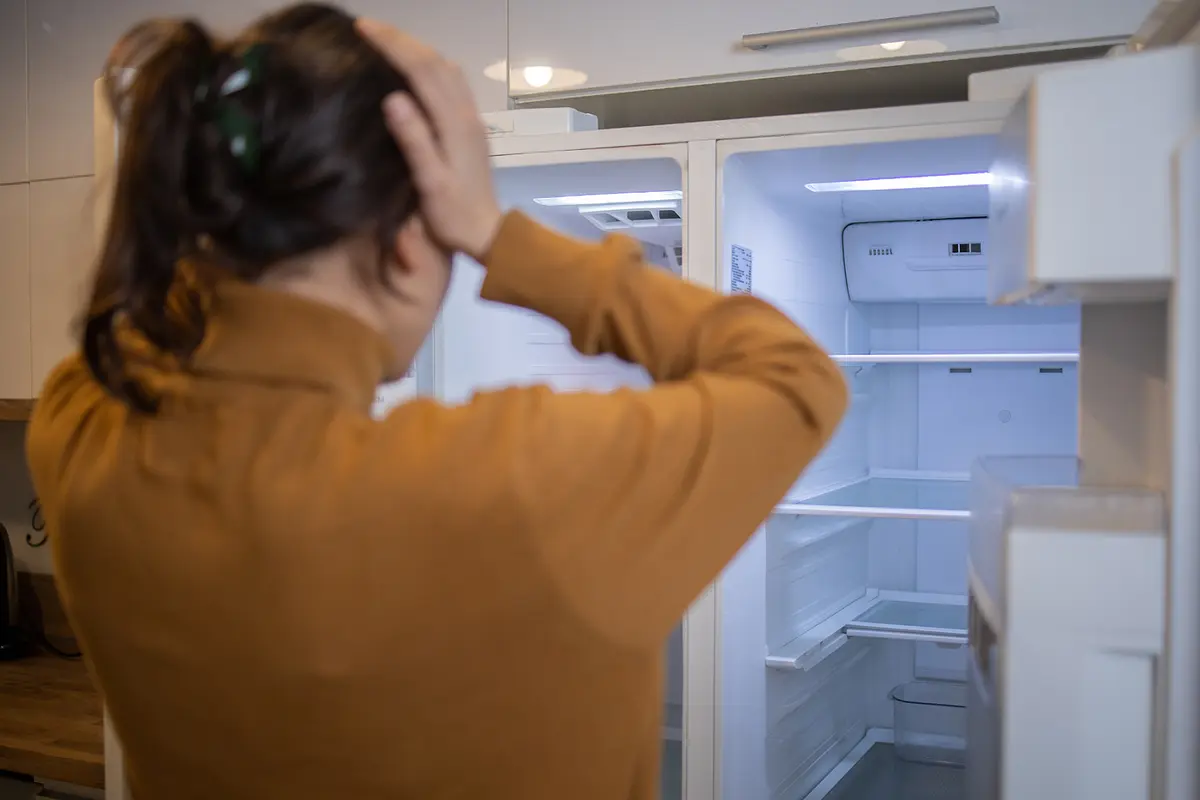The blog post has been auto-translated.
Show original

Q1|Why is it "Not Cooling/Leaking Water"? (Common Culprits)
- Door Seal Not Tight: Cold air leaks out and hot air gets in, the unit runs constantly but doesn't cool enough, and produces a lot of condensation.
- Blocked Air Vents: Food touching the vents or shelves too full, preventing cold air circulation, resulting in some spots cold and some warm.
- Drain Hole Clogged: Defrost water can't drain to the drip pan, accumulating at the bottom of the fridge creating a "small pond".
- Back of Unit Overheated: Fridge too close to the wall or surrounded by clutter, poor heat dissipation = gets less cool the more you use it.
Q2 | How to Perform First Aid?
- Clear Space + Adjust Temperature
- Move food blocking the vents; the refrigerator should be about 70% full for best results.
- Refrigerator compartment: 3–5°C; Freezer compartment: around −18°C (after adjusting temperature, wait half a day to a day to see the effect).
- Do not put hot food inside; let it cool to room temperature before placing it in the fridge.
- Check Door Seal (Paper Strip Test)
- Place a piece of paper between the door and frame; if it pulls out easily when lightly tugged, the seal is poor.
- Clean the seal and door edge with a damp cloth; the refrigerator should be level, ideally slightly tilted backward so the door closes tightly on its own.
- For minor deformations, gently warm with a hairdryer on low heat from a distance and press to reshape—avoid overheating.
- If the deformation is severe, it is recommended to seek professional help for replacement.
- Unclog the Drain Hole
- There is usually a small drain hole at the bottom of the back panel; gently unclog it with a cotton swab or cable tie; wipe dry any accumulated water in the tray.
- If frost is thicker than 5 mm, turn off the refrigerator to defrost (placing a bowl of warm water inside with the door open can speed this up)—avoid poking ice with sharp objects.
Q3|Daily Prevention
- Leave Ventilation Space: Leave at least 2–3 cm of space around the air outlet (front, back, left, and right); keep the back of the unit 5–10 cm away from the wall.
- Minimize Opening, Closing, and Lingering: Grab everything at once; avoid opening the door and "staring blankly."
- Wipe the rubber seal and clear the drain hole monthly; perform a thorough cleaning quarterly (and discard expired food while you're at it).
- Use Containers or Food Storage Boxes: Store damp vegetables or soup in containers to reduce moisture and prevent cross-contamination of odors.
- Odor Removal: Place a small cup of baking soda or coffee grounds to absorb odors, replacing it every two to three weeks.